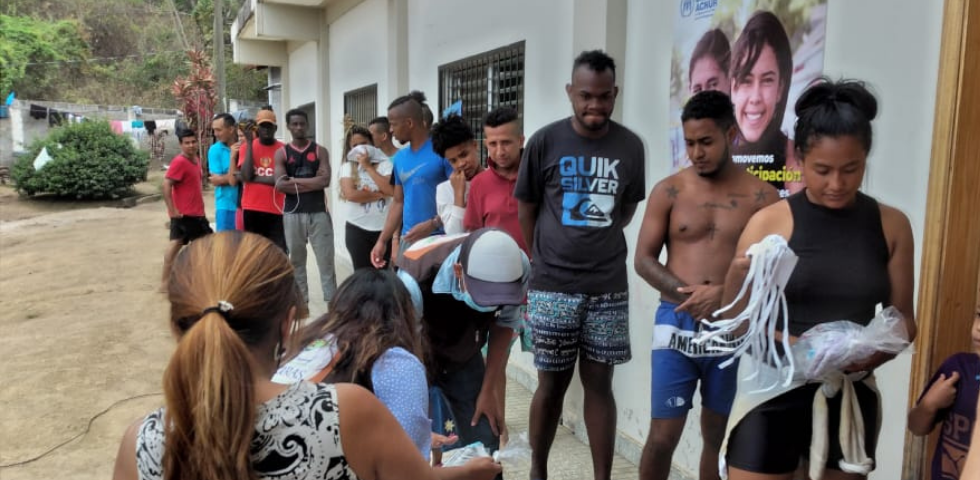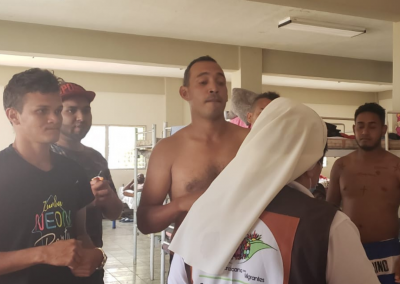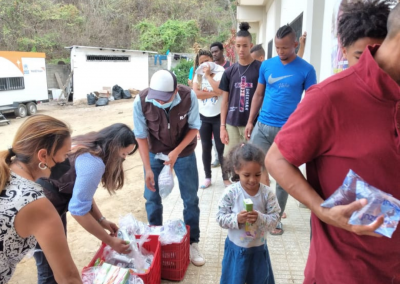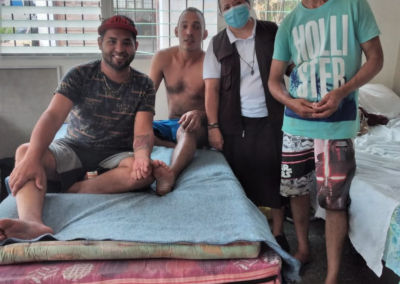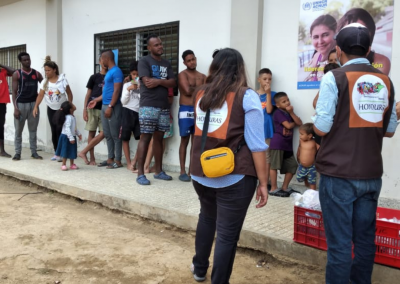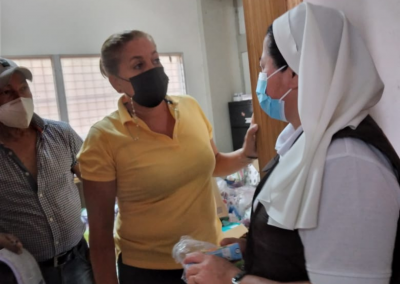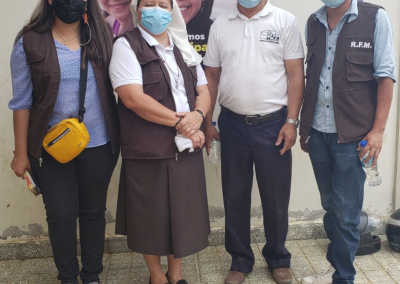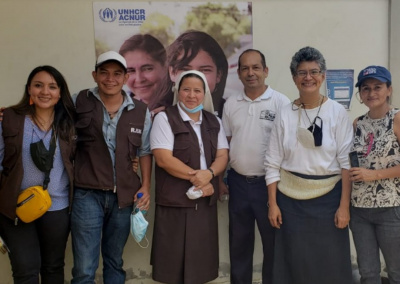On Good Friday, April 15th, part of the team of the Franciscan Network for Migrants of Honduras mobilized to deliver 150 emergency kits for migrants in the “Jesus is alive” Shelter, belonging to the Parish-Cathedral of Danlí, El Paraíso.
This action was carried out due to the need to assist migrants and from the reflection on the passion of Jesus in the Way of the Cross, a symbolic procession and prayer commemorating the path that Jesus traveled from his arrest, trial, and torture to his execution on the cross. Carrying out this meeting with migrants is assuming the accompaniment and attention to those who suffer the ordeal of forced displacement as a result of multiple forms of violence.
The meeting with the migrants was achieved through the link with the Danlí Human Mobility Pastoral Ministry, who take care of and accompany migrants and refugees in Honduras, a service they provide with the coordination of the Scalabrinian sisters.
It should be noted that the members of the parish have organized themselves to provide care in the shelter. Their experiences have been unique, and it has represented a real challenge for the community, integrating all the parish groups into teams for different tasks, including hygiene, care, food, and safety. This has been accomplished with the help of outside organizations that are collaborating with food.
Every day the “Jesus is Alive” Shelter receives many migrants of different nationalities. During the visit we met Cubans, Venezuelans, Haitians, Ecuadorians, Nicaraguans, and the day before some Pakistanis and Senegalese left the shelter.
Due to the migration law in Honduras, migrants have to complete the mandatory migration documentation process. Therefore, the government charges all people who cross the Central American nation irregularly for a safe passage card, so that they can continue their transit in order to reach the United States At $220 USD, this is one of the highest fees in Central America according to the testimonies of the migrants, so it directly affects them as they continue their journey.
There are many migrants who cannot pay to leave the country and must stay for several months, until the migration institute gives the go-ahead to allow them to continue their journey. In other cases, the migrants decide to cross Honduras, knowing that they run the risk of having to pay bribes to officials or transport drivers so that they do not restrict their mobility. Otherwise they must look for alternative routes or areas where they can move undercover, which exposes them to more violence.
During Holy Week from April 13 to 17, the government stipulated the exception of payment of the safe-conduct. With this the migrants benefited during this week, having to carry out the migratory process without the effect of the charge. As a RFM-Honduras team, we continue to be concerned that in the irregular situation of migrants. The collection is excessive, and without greater protection protocol for people who arrive in the country in a situation of vulnerability.


